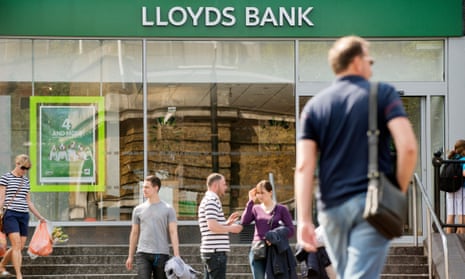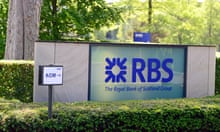Mis-selling scandals cost Lloyds Banking Group a further £1.8bn in the first half of the year, the bank has revealed, as it pledged to return more cash to shareholders in the future.
There was a £1.4bn provision for compensation for payment- protection insurance during the period, which António Horta-Osório, boss of the bailed-out bank, described as disappointing. This takes the total cost for PPI for Lloyds to £13.4bn, and the industry’s bill to more than £26bn.
Lloyds, which employs 7,000 people just to handle PPI, admitted that if customer complaints did not tail off as quickly as it expected it could face further hefty charges in the months ahead. The PPI bill for Lloyds could rise by a further £10bn, according to one City estimate published on Friday.
The bank also took a £117m charge to cover the fine earlier this year from the Financial Conduct Authority for mishandling PPI complaints, a £175m charge for packaged bank accounts – where products such as insurance are sold with a current account – and additional sums for other compensation payouts.
“Rebuilding customer trust remains a key imperative for the business. Regrettably, the UK banking sector is still being impacted by conduct issues, including litigation and PPI,” said Horta-Osório.
Despite the slew of scandals knocking the bank’s profits, Horta-Osório said it had made strong progress and focused on the prospects for returns to shareholders in the future.
The bank paid an interim dividend of 0.75p a share – some £535m – and intends to conduct share buybacks and hand out special dividends. The aim is to make the shares more attractive to prospective shareholders, particularly retail investors whom the government intends to target for share sale in the future.
The government’s stake now stands at below 15% – down from the 43% holding it built in the wake of Lloyds’s rescue of HBOS during the 2008 crisis – and Horta-Osório said the remaining stake would be disposed of in the next 12 months.
There has been speculation he will leave once the taxpayer stake is sold off, but he said: “I like it here, I like the management team … I like the bank. So unless the board or shareholders want to boot me out, I’m quite happy here.”
Profits for the first half rose 38% to £1.2bn. This includes the PPI charge and the £660m cost of selling off TSB, the branch network which it had to create as result of its £20bn taxpayer rescue in 2008. TSB was floated and then sold to Spain’s Sabadell.
The bank also revealed the impact of changes to the bank tax regime, introduced by George Osborne in his July budget, to water down the bank levy and introduce an 8% surcharge, which will increase its effective tax rate to 30% from the low 20s now.
Lloyds shares fell 2.8% to 83p.
The PPI scandal has hit Lloyds harder than other banks and could still escalate. It sold 16m PPI policies since 2000 and has now contacted, settled or taken provisions for more than 45% of these. The current provision assumes a significant decrease in complaint volumes over the next 18 month. But it could be increased by £3bn over 18 months if the scale of complaints does not fall, the bank estimated. However, stockbroker Cenkos warned the cost could more than treble to a further £10bn.
Richard Lloyd, executive director at consumer body Which?, said: “This scandal will rumble on for years unless the banks pull their socks up and start making it much quicker and easier for people to get back the money they’re rightfully owed. If any bank fails to do this, the regulator must step in.”
Lloyds said two-thirds of complaints come from more than 200 claims-management companies, which are thought to have received around £1.7bn in fees from the bank as a result of bringing claims.
A court ruling last year over the way commission was paid over PPI sales – known as Plevin v Paragon – could also push up the compensation bill for Lloyds and other banks. The City regulator is reviewing the implications for the industry.
George Culmer, finance director at Lloyds, said the costs of compensation for packaged bank accounts would not be huge: “It will not be another PPI,” he said.





Comments (…)
Sign in or create your Guardian account to join the discussion